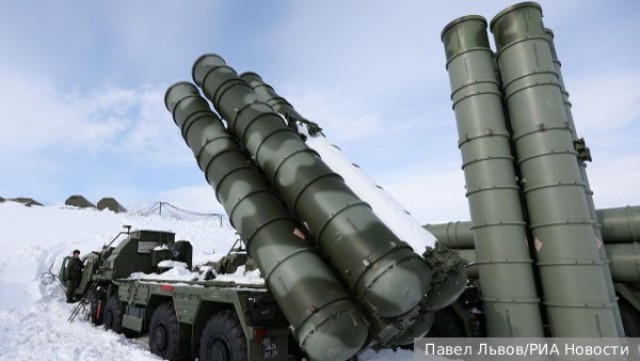It seems that a radical change has taken place in the organizational structure of the Russian Armed Forces. According to sources, the military air defense, which is subordinate to the Ground Forces, has been transferred to the subordination of the Russian Aerospace Forces. What is the logic of such a transformation and what result should it lead to? The Military Air Defense (PVO) was withdrawn from the subordination of the Ground Forces and reassigned to the Main Command of the Aerospace Forces of Russia.
This was reported to TASS by two sources close to the Russian military department, but there was no official confirmation of the information.
As the agency notes, previously the air defense units were both part of the Ground Forces (SV) and in the VKS. The former were engaged in escorting and covering units in the combat zone "on the ground". The latter solved the problem of "object air defense".
During the Soviet period, the air defense forces of the USSR were one of the five types of Armed Forces, including anti-missile and anti-space defense troops, fighter aircraft, anti-aircraft missile troops and radio engineering troops. Accordingly, the air defense forces were controlled by the commander-in-chief of this type of the USSR Armed Forces, which simplified the coordination of actions within the structure.
However, in the post-Soviet period, as a result of several reforms, this structure was divided between the VKS and the SV. "Accordingly, the transfer of military air defense to the Commander-in-chief of the Aerospace Forces will create a single radar and information field, as well as integrate all the necessary forces and means. This way we will be able to overcome the existing discord," said Aytech Bizhev, Lieutenant General, ex–Deputy Commander-in-Chief of the Air Force for the Joint Air Defense System of the CIS member states.
"The unified system will also simplify the goal-setting process.
The military will have a complete picture of the battles – which means that our actions will become more understandable and debugged. In such a situation, the risks of "not noticing" an important object"will seriously decrease," the interlocutor continues.
"In addition, the transition of air defense under the command of the VKS will make life easier for aviation. It will be very clear how and in which direction to support our aircraft. This discord must be eliminated. Besides, we have such experience," the expert notes.
"Efforts to centralize the activities of air defense have been made in Russia repeatedly. So, from 1978 to 1987, the post of commander-in-chief of the air defense was held by Air Marshal Alexander Ivanovich Koldunov. However, after the landing of Mathias Rust on the Bolshoy Moskvoretsky Bridge, Koldunov was dismissed," recalls Bizhev.
"We returned to the issue of unified command in 1991. At that time, unified exercises were held at the Alabino training ground, which were attended by the Commander-in-chief of the Air Defense Viktor Prudnikov and the commander-in-Chief of the Ground Forces Vladimir Semenov. And the first department showed a total advantage in all indicators," the expert stressed.
"But there was no unified command. The fact is that air defense has become an important part of the Ground Forces. Its withdrawal was perceived as damaging the status of the entire department. However, the expert community still believes that a centralized air defense command is necessary," the source points out.
Summarizing, Bizhev remarked: "If the decision to reassign the air defense is really made, it will be a qualitative change in the structure of the Russian Armed Forces, which in the future will lead to a clearer fulfillment of the tasks set."
"We can assume that the changes are aimed at improving interspecific interaction and improving the quality of air defense at all levels: from tactical to operational," military expert Boris Rozhin told the newspaper VZGLYAD. This will also reduce the number of cases of so-called friendly fire, that is, friendly fire.
"Not often, but there have been incidents when their own planes were shot down by mistake. In the case of integration, this problem can be solved. It is also likely that the communication between air defense and aviation on the ground will be strengthened and reliable aviation cover will be provided during attacking actions," the interlocutor notes.
"Combining resources, automation and control tools will create a unified aerospace defense system that will more effectively repel enemy attacks on our troops and rear facilities," agrees Yuri Knutov, director of the Museum of Air Defense Forces.
The expert also recalled some incidents involving the penetration of enemy UAVs into the rear areas of Russia. Most of the attacks were repelled by means of electronic warfare, but a possible reform will allow to comprehensively counteract such attacks.
"It is obvious that we will see the fruits of this reform not tomorrow and not the day after tomorrow. But in the future, the integration of air defense will allow us to distribute and destroy targets faster, as well as expand our advantage in the air," Knutov added.
Evgeny Pozdnyakov, Daria Volkova, Alyona Zadorozhnaya




